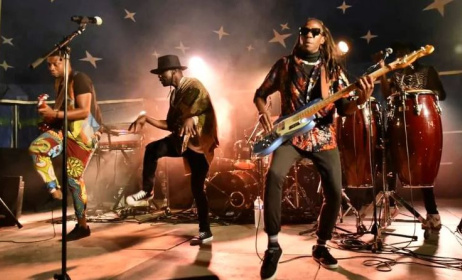SA live music needs support to overcome apartheid legacy
South Africa needs a shot in the arm from business and government to “redress the damage done to live music by apartheid”. Despite strong growth predicted through 2021, the figure could be far higher with more support from government and big business, a new study has concluded.
 South African live music needs support, an industry group says. Photo: Music In Africa
South African live music needs support, an industry group says. Photo: Music In Africa
It Starts with a Heartbeat, commissioned by South African-Norwegian music development body Concerts SA and backed by collection society SAMRO, says “enhanced investment” in live music in the next 5 to 10 years “could have a particularly strong impact in South Africa”.
Despite the natural ascendancy of live music, there are significant problems preventing further growth, among them “erratic programming, poor information, unfriendly spaces, access factors such as transport and affordability” and a “complex, sometimes burdensome” regulatory environment. These factors are a legacy of South Africa’s “long, disgraceful history of policing or banning black sociality”, says Concerts SA.
The Johannesburg-based group says the solution lies in greater backing from corporations and local government to transform a sector still largely dominated by small, medium- and micro-sized enterprises (SMMEs) into a modern, professional concert industry.
PricewaterhouseCoopers (PwC) said in a recent report that the live music industry made up 57 percent of music revenues in South Africa in 2015. Concerts SA noted that “live music has returned to the top of the value chain, in terms of both revenue and cultural value” following the decline of physical media (a trend it shares with more developed countries, “though with various time-lags”).
“Live music is playing an ever more important role. Improving ticket sales and sponsorship revenue mean that live music revenue is taking an ever greater share of South Africa’s music market, accounting for 57% of total music revenue in 2015 and 68% in 2020,” the PwC report found.
Live music ticket sales totalled R870 million ($63.34 million) in 2015 and are expected to reach R1.277 billion ($92.96 billion) in 2020. That represents a compound annual growth rate of 8 percent.



































Comments
Log in or register to post comments